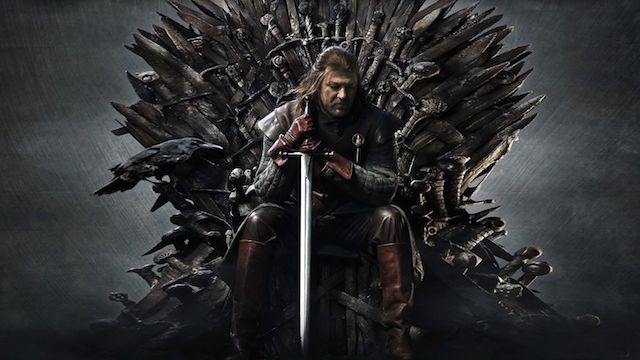When I was a boy I used to love the stories of the old kings of England, devouring book after book on the subject until I could rather involuntarily memorise all the dates (which has stuck with me, useless though this knowledge is, and stretches back before the Conquest, although once we get to the Edwys and Edwigs it gets a bit blurry).
My fascination with this long, bloody tale was not just an early indicator that I was a massive social inadequate, although that may be part of it; I loved those stories because they were fantastic. And as Game of Thrones starts tonight I’m comforted by the fact that I am not alone – for Thrones is essentially the Our Island Story for the HBO generation.
If you’re already sick to death of hearing about Game of Thrones, look away now, and certainly don’t go and buy my new ebook The Realm, on the historical parallels in the show, in particular the medieval English history that inspired George R.R. Martin. Buy it here and raise the fortunes of House West of Haringey.
Today I have already read ‘5 real life lessons from game of thrones’, a blogpost on why Nigel Farage is the Daenerys Targaryen of politics, and a piece on the ethics of loyalty in Game of Thrones(warning: this actually contains spoilers for Breaking Bad). There are even some Thrones wedding dress ideas (surely considering how weddings usually end up in Westeros, the worst idea ever). While former Australian Prime Minister Julia Gillard is writing in the Guardian about how the show mirrors Aussie politics; indeed, we all remember that time when she shoved a sword through Tony Abbott’s face and kept his children hostage after his bannermen had sacked her house.
Although we live in the golden age of television, American TV right now being at the same place as German music at the end of the 18th century, or Italian art at the beginning of the 16th, Game of Thrones has a particular cultural importance, even more so than Sopranos, The Wire or Breaking Bad. And my feeling is that its cultural impact will last.
The main reason for its popularity is Martin’s storytelling skills, and the show’s ability to create sympathetic characters, which can make viewers overlook many faults. The fantasy element, once you get over the prejudice (like 95 per cent of Thrones fans, I feel obliged to add the caveat ‘but I’m not into fantasy’), is comfortingly distracting from our everyday woes, and I can at least be assured that whatever horror befalls a character, he won’t get cancer or hear from the Inland Revenue or anything else that keeps me up at night.
The violence I can take or leave; along with the sex, it just means it’ll be embarrassing watching it with the children when they’re old enough. And tonight’s episode has an extraordinary amount of bloodshed, including one killing during a tavern fight featuring a palm and a sharp instrument that out-Thrones most previous Thrones deaths.
But the episode also features the preparation for the wedding of Joffrey and Margaery Tyrell, and this aspect is more significant to the series than the violence or sex. Thrones is essentially about human existence as no longer experienced by people who have become W.E.I.R.D – western, educated, industrialised, rich, democratic.
Ours is an unnatural, atomised existence, and I don’t mean unnatural in a pejorative sense; rather we’ve been taken out of traditional human societies in which people are linked to their clans, an intricate part of which is the idea of marriage as a family alliance. We still find this sort of world rather fascinating, because it was ordered, simple and coherent, while ours is fluctuating and confusing, but Martin paints it as it really was – utterly awful.
Still, I hope the success of the programme encourages a revival in interest in the old kings of England, and gets people buying Our Island Story. By which I mean, obviously, I hope they buy my book.







Comments